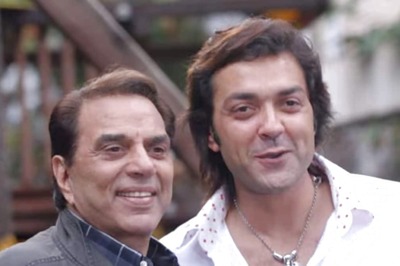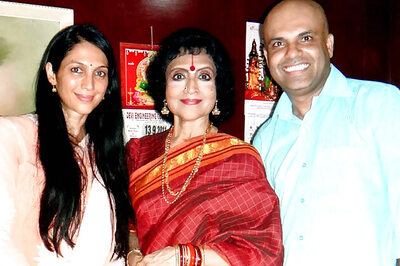
views
Ghulam is ‘Azad’ from the party and family he has loyally served for half-a-century. The Congress has responded with studied nonchalance and petty remarks, which clearly mask a deep disquiet over the manner of his departure and its future implications.
The damage to the Congress brand apart, Ghulam Nabi Azad was a trusted aide and family loyalist, and as such, had an intimate knowledge of the party, its inner workings and secrets. While the ‘omerta’ observed by politicians rules out any startling disclosures, knowledge itself is a powerful tool.
His exit was long anticipated, but his final salvo was not. For, Azad did not go quietly into the night. His forthright farewell letter addressed to the ‘Hon’ble Congress President’ proved the unkindest cut of all. It characterises Rahul Gandhi as a latter-day Emperor Nero, indifferent to the crumbling of the Congress edifice.
Between the lines of Azad’s long missive, Rahul emerges an entitled, egotistical middle-aged ‘youth’ who combines incompetence with puerile behaviour. All of this has been said before, but not by an individual who has had the opportunity to observe him so closely. Azad has been a fixture in the Congress Working Committee (CWC) and an AICC general secretary for over three decades, and was Leader of the Opposition in the Rajya Sabha until his retirement in 2021.
More importantly, he enjoyed Sonia Gandhi’s trust, because he had been close to Rajiv. In 1991 and again in 1998, he was among those who pleaded with the reclusive Sonia to ‘rescue’ the Congress. In August 2019, after a second consecutive debacle in the Lok Sabha elections, he thanked her for looking after the party. But a fortnight later, he led a number of other leaders (the G-23) in writing to Sonia Gandhi and urging a complete overhaul of the organisation.
The G-23 ‘dissenters’ have reason to doubt Rahul Gandhi’s leadership skills. Ever since 2013, when the heir presumptive took over as vice-president of the Congress, some 30 key leaders from various states have left the party (including veterans like Kapil Sibal and Capt Amarinder Singh and Gen-Nex leaders like Jyotiaditya Scindia and Jitin Prasada). Gandhi’s attitude to these ‘betrayals’ is reflected in his recent response to rumours that Telangana Congressmen were in talks with the TRS and BJP: “We don’t need such people…they will be kicked out.”
The trust deficit between the Congress leadership and organisation was exacerbated by the death of Ahmed Patel, who served as Sonia Gandhi’s right hand. He was the link between the family and state leaders, who now find it very difficult to gain access to the Gandhis, most of all the de facto party boss Rahul Gandhi. The fact is that in the absence of a sounding board like Patel, they are more vulnerable to poaching.
Azad’s departure feels a bit like a 1999 redux, when three CWC members led by Sharad Pawar threw down the gauntlet to Sonia Gandhi. Pawar proved that it was possible for a high-profile leader with a strong regional base to survive. He later joined hands with the Congress, but on his own terms. The Congress needed him, so Pawar’s direct attack on Sonia Gandhi was forgotten. YS Jaganmohan Reddy was even more successful. After quitting the Congress in 2010, he went on to become the chief minister of Andhra Pradesh.
Detractors say that unlike Pawar and Reddy, who are grassroots leaders, 73-year-old Azad is a ‘rootless wonder’. This is not quite true, as he has served as chief minister of Jammu & Kashmir and has kept in touch with the state all through his long career in national politics. He enjoys a following across communities in his native Jammu. In fact, the Congress state unit has been thrown into chaos by his exit, and almost a dozen leaders have quit in protest.
As a veteran election manager, known for his organisational skills, Azad would certainly have mapped out a plan of action in advance, and has hinted at a new party in J&K. Several other members of G-23, like Anand Sharma, Bhupinder Singh Hooda and Manish Tewari, who accompanied him to a public event in Jammu last year, are open about their disenchantment with the Congress and its leadership.
Political observers were intrigued by Prime Minister Narendra Modi’s emotional farewell to Azad when he retired from the Upper House, and the Padma Bhushan awarded to him by the NDA government. However, the BJP does not appear to be on Azad’s agenda. His close associate, Kapil Sibal, was elected to the Rajya Sabha courtesy the Samajwadi Party.
Rahul Gandhi is reputed to be less forgiving of criticism than his mother, so Azad may well have burnt his boats with the grand old party. Given the circumstances, he had nothing to lose. But the Congress does. It would do well to take his advice seriously, and resolve the leadership crisis — by election, rather than nomination.
Read all the Latest Opinion News and Breaking News here



















Comments
0 comment